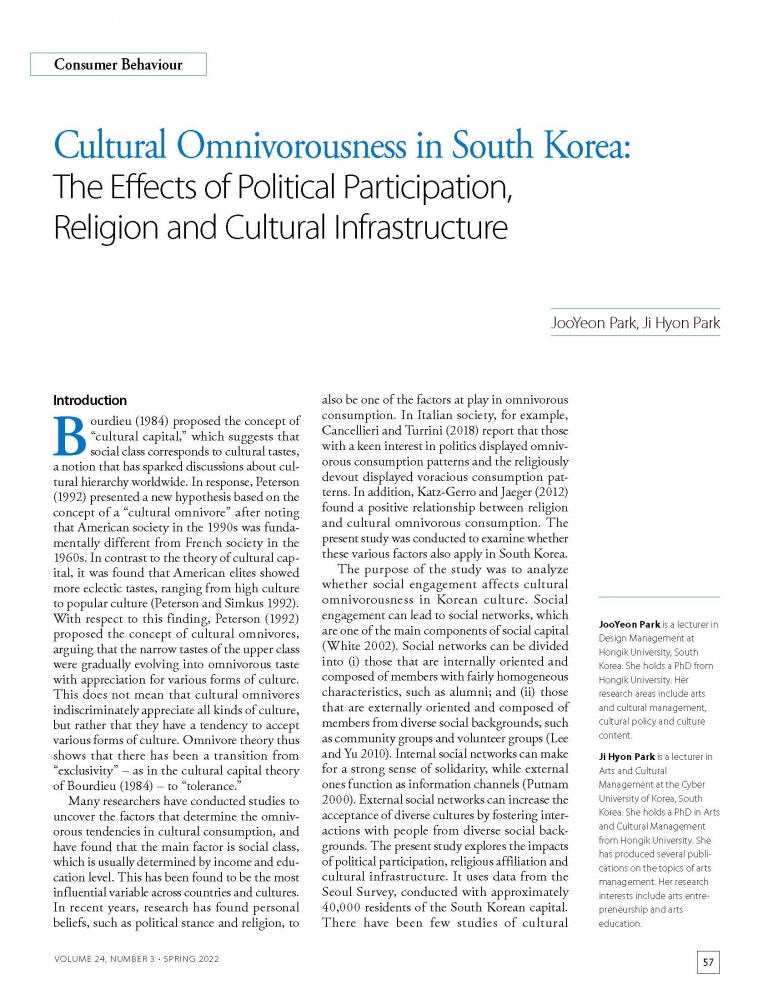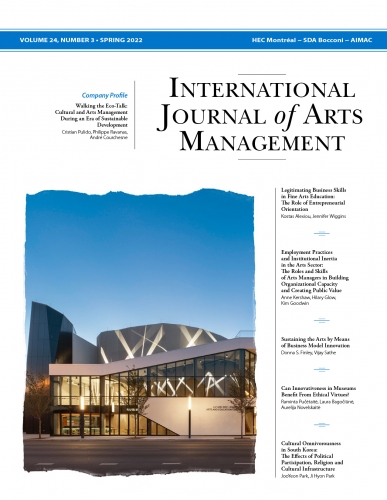Cultural Omnivorousness in South Korea: The Effects of Political Participation, Religion and Cultural Infrastructure
Produit: Article
21,00 $ CA
(en anglais seulement)
JooYeon Park, Ji Hyon Park
JooYeon Park is a lecturer in Design Management at Hongik University, South Korea. She holds a PhD from Hongik University. Her research areas include arts and cultural management, cultural policy and culture content.
Ji Hyon Park is a lecturer in Arts and Cultural Management at the Cyber University of Korea, South Korea. She holds a PhD in Arts and Cultural Management from Hongik University. She has produced several publications on the topics of arts management. Her research interests include arts entrepreneurship and arts education.
ABSTRACT
This study examines how individual political participation and religion as well as cultural facilities affect cultural omnivorousness in Korean culture. It shows that the more politically involved people are, the more omnivorous they are. Religious people especially were found to consume diverse cultural genres. This can be explained by the fact that a socially engaged person who is involved in the community tends to take a more tolerant stance. It was also found that number of cultural facilities in the community had a negative impact on diverse cultural consumption. This is deemed to be because neighbours visit facilities selectively as a result of exchanging information about their community among themselves. The fact that such distinctive results were observed across different types of social engagement can be explained by the unique cultural characteristics of Koreans, who tend to develop strong social bonds based on trust.
KEYWORDS
Cultural omnivorousness, cultural consumption, social engagement, political participation, religion, cultural infrastructure

